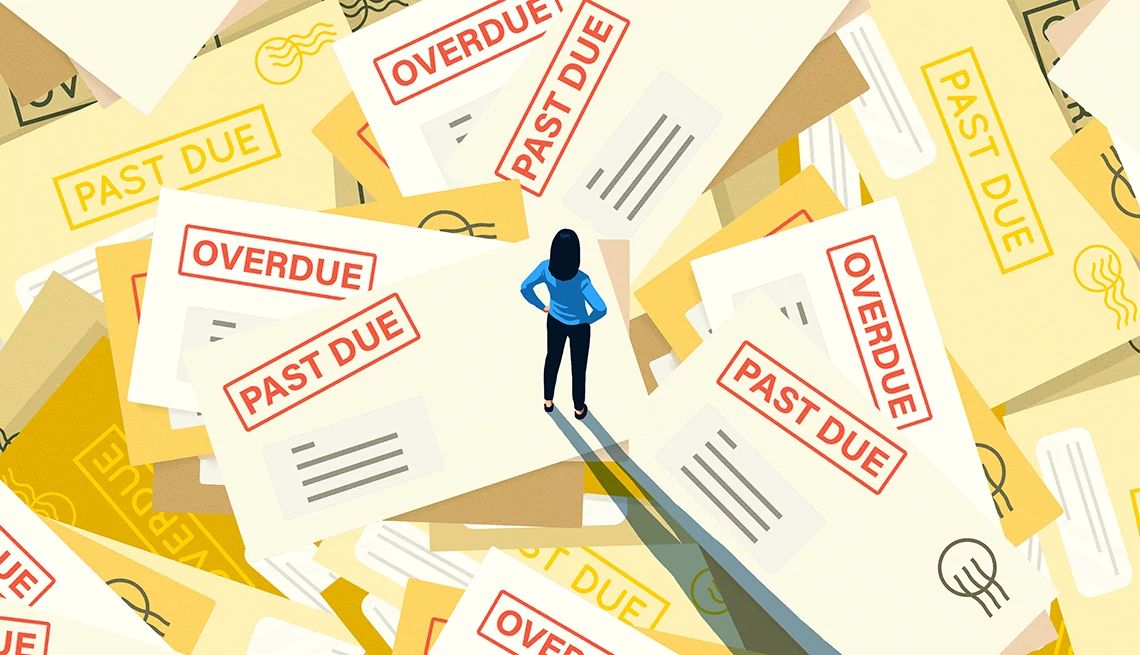AARP Hearing Center


Soon after Dolores Tighe’s husband died in December 2023, her grief began to be punctuated by letters from banks and calls from strangers asking questions about her finances.
Tighe, 78, threw away the letters and hung up on the callers. “I honestly didn’t know who they were,” she says. “And I didn’t want to give out information on the phone.”
Then utility companies serving her home community of North Andover, Massachusetts, started threatening to shut off her electricity and gas. Credit cards she’d shared with her husband, Mike, were canceled.
“I never realized that he was the principal cardholder, and I don’t think he ever realized it would affect me, or he would have changed it,” she says. “We always had credit cards and my name was always on them, and I never knew it was going to be different until all of a sudden it was.”
Many older Americans who lose a breadwinning spouse find themselves having to untangle knots of financial red tape like this, only compounding the loss of income they suffer.
Recent, first-of-its-kind research reveals that — on top of these other problems — people over age 50 whose partners die experience an average 10-point decline in their credit scores, which, like an unseen hand, can push up the cost of borrowing and restrict their access to credit.
Nearly a third see their credit scores fall by 20 points or more, a consequence from which it takes them two years, on average, to recover.
When a spouse dies, “you may not think about your bill payments. That might not be the first thing on your mind,” says Stephanie Moulton, a professor of public affairs at the Ohio State University and a coauthor of the study, issued by the Center for Financial Security at the University of Wisconsin-Madison. “You’ve got to plan for that fog now, because you’re not going to be able to think in that period.”
Falling behind
The credit scores produced by FICO and VantageScore, the dominant credit-scoring companies, range from 300 to 850; a score of 670 or higher is considered good. Scores are based on several factors, including payment history, total debt and types of credit (such as credit cards, mortgage or student debt). The longer consumers have been making payments, especially on-time payments, the better.
Three factors typically affect the credit scores of a surviving spouse, Moulton says:
- Falling behind on payments, which may result from their sudden decline in income or not knowing balances were due.
- Having a limited credit history because a couple’s loans and credit cards were in the deceased partner’s name.
- Applying for new credit, which can trigger unwanted scrutiny from credit-rating agencies.
“No one is prepared for losing a spouse. There’s so much that no one suspects,” says Chris Bentley, a certified financial planner and founder and executive director of the nonprofit counseling organization Wings for Widows. “This is a crisis, and no one is paying attention.”
The loss of economic security when a partner dies is particularly acute for women, who live longer than men — by nearly six years, on average — and, among older generations, are more likely to have married at a time when husbands typically handled family finances.
































































More From AARP
25 Ways to Bind up Grief’s Wounds
How to heal when the deep shadows of loss pierce your heartHow, Why and When to Check (or Freeze) Your Credit
Monitoring your creditworthiness is key for tracking your financial health and spotting fraud
5 Easy Ways to Help You Increase Your Credit Score
If your rating has taken a ding, you can fix the issuesRecommended for You